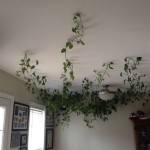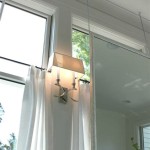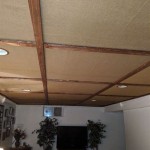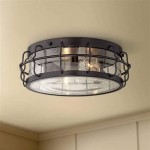What Is a Vaulted Ceiling in House Design?
A vaulted ceiling is a type of ceiling construction that features an arched or sloping structure. This design element adds a sense of grandeur and spaciousness to a room, transforming its overall aesthetic and functionality. Vaulted ceilings are a popular architectural feature in homes, offering a variety of benefits that can enhance the living experience.
Types of Vaulted Ceilings
There are various types of vaulted ceilings, each with its unique characteristics and visual appeal. Some common examples include:
- Barrel Vault: This type of vaulted ceiling resembles a half-cylinder, creating a continuous, sweeping curve. Barrel vaults are often used in hallways, corridors, and large open spaces.
- Groin Vault: Formed by the intersection of two barrel vaults at a right angle, groin vaults create a more complex and intricate pattern. They are commonly found in churches, cathedrals, and grand foyers.
- Rib Vault: Rib vaults feature a series of ribs that support the ceiling, creating a framework of arches. This design allows for more intricate patterns and decorative elements.
- Gothic Vault: Characterized by pointed arches and intricate tracery, Gothic vaults are often used in churches and cathedrals, adding a sense of spirituality and grandeur.
- Fan Vault: Fan vaults feature a series of ribs that radiate outward from a central point, resembling a fan. This type of vault creates a dramatic and elegant effect.
Advantages of Vaulted Ceilings
Vaulted ceilings offer numerous advantages that contribute to a more appealing and functional living space:
- Increased Space: The upward slope of a vaulted ceiling creates a sense of height and spaciousness, making the room feel larger and more airy.
- Improved Lighting: Vaulted ceilings often incorporate windows or skylights, allowing natural light to flood the room, creating a brighter and more inviting atmosphere.
- Architectural Interest: The unique shape and design of vaulted ceilings add architectural interest and visual appeal to a space, making it more distinctive and memorable.
- Sound Absorption: Vaulted ceilings can help to absorb sound, reducing noise levels and creating a more peaceful and intimate environment.
Considerations for Vaulted Ceilings
While vaulted ceilings offer numerous benefits, there are also some factors to consider before incorporating them into your home design:
- Cost: Vaulted ceilings typically involve additional construction and materials, which can increase the overall cost of the project.
- Heating and Cooling: Vaulted ceilings can make it more challenging to heat and cool a room effectively, as the increased volume of air requires more energy to adjust the temperature.
- Accessibility: Accessing the ceiling for maintenance or repairs can be more difficult with a vaulted ceiling, requiring the use of ladders or specialized equipment.
- Safety: If not properly designed and constructed, vaulted ceilings can pose safety risks, particularly in the event of a fire or other emergencies.
Examples of Vaulted Ceilings in House Design
Vaulted ceilings can be incorporated into various areas of a home, enhancing both the aesthetics and functionality. Here are some examples:
- Living Rooms: Vaulted ceilings create a dramatic focal point in living rooms, adding a sense of grandeur and spaciousness to the area.
- Bedrooms: Vaulted ceilings can make bedrooms feel more luxurious and inviting, particularly when combined with skylights or large windows.
- Kitchens: Vaulted ceilings in kitchens can visually expand the space and create a more airy and inviting atmosphere for cooking and dining.
- Bathrooms: Vaulted ceilings in bathrooms can create a spa-like ambiance, adding a sense of luxury and relaxation.
Ultimately, the decision to include a vaulted ceiling in a home design depends on the individual's aesthetic preferences, budget, and the overall style of the house. When properly planned and implemented, vaulted ceilings can be a beautiful and functional addition to any home, transforming the space and creating a unique and memorable living experience.

Vaulted Ceiling Ideas 12 Cool Designs That Will Elevate Your Space Real Homes

Vaulted Ceilings Ideas That Take Rooms To New Heights Architectural Digest

Vaulted And Arched Ceilings In Argentine Houses Examples Using Brick Wood Concrete Archdaily

Vaulted Angled Ceilings What Color They Should Be Part 3 Kylie M Interiors

8 Options For Custom Ceilings Passion Home Design

Vaulted Ceilings Vs Cathedral Remodeling Consultants

Vaulted Ceilings 101 History Pros Cons And Inspirational Examples

75 Vaulted Ceiling Living Room Ideas You Ll Love May 2024 Houzz

Vaulted Ceilings Ideas That Take Rooms To New Heights Architectural Digest

Vaulted Ceilings 101 History Pros Cons And Inspirational Examples
Related Posts








